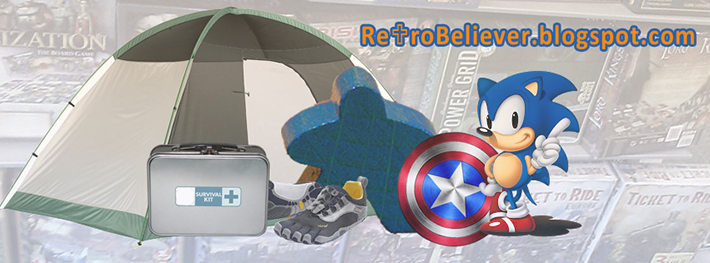 My wife told me an intriguing story. During her visit to the dentist, she overheard a young girl asking her father if she could play a game on his cellular phone. My wife described the girl as being "whiny," which seems to be the chosen tone of many children. At the same time, my youngest son devoured 11 chapters of a book. Upon first hearing this story, one may not find anything that intriguing, but to me this story reinforces the importance of disconnecting from the digital and connecting to others and with concrete objects in the "real." Indeed, personal contact is one way in which board games will save the world, but the strongest impediment might be games of another kind...
My wife told me an intriguing story. During her visit to the dentist, she overheard a young girl asking her father if she could play a game on his cellular phone. My wife described the girl as being "whiny," which seems to be the chosen tone of many children. At the same time, my youngest son devoured 11 chapters of a book. Upon first hearing this story, one may not find anything that intriguing, but to me this story reinforces the importance of disconnecting from the digital and connecting to others and with concrete objects in the "real." Indeed, personal contact is one way in which board games will save the world, but the strongest impediment might be games of another kind...The most salient trend in gaming is how games become more and more intricate and engrossing for the player: games are now more complex, more visually appealing, and more portable than ever. Games look sharper and crisper, and set the challenge bar high enough with less cheese than in the past; with games like Plague or Bad Piggies, players benefit from engaging graphics, top-notch sound effects, and enough detail and complication to occupy even the most jaded gamer. Also, gone are the days of needing a Game Gear or Game Boy or even having to pay money for cartridges; just get a smartphone or a tablet, download a free game app, and one can play most games anywhere and only have to tolerate the periodic advertisement. People can play everything from first-person shooters to virtual board games; one of my gaming buddies even played Ticket to Ride for the first time... on an iPad! No longer do you need game realia (such as game pieces or dice), console, cartridges, or even opponents; the computer can provide an opponent or opponents anytime, anywhere.

Considering the convenience of computer games now, plugging into the digital world is somewhat more appealing than whipping out a game board or game books, and finding "experienced" players is easier now that computer intelligence and game programming can frustrate veteran players without the skulduggery inherent to old video games, such as spotty hit detection. However, people are now, more than ever, tempted to disconnect from others. Many video game and computer game players may now be less apt to challenge live opponents, let alone engage a human being in conversation. Sure, people that play online RPGs can connect with players through a chat window or by audiovisual communication, but it all happens in a world disjointed from reality.
As the "world" pulls us farther and further apart, seducing us with a hyper-reality of bright colors and endless opponents whom we would never have to befriend, it creates the illusion of interconnection with social media sites like Facebook and Twitter and deceives us into believing in our self-reliance. We buy into the idea that we don't need other people; we just need a computer. Yet, people are alone in their offices, chatting with each other through screens. It all seems so (William) Gibsonesque a la Neuromancer, but we need to touch each other; we need to touch this world. So, next time, instead of playing Ticket to Ride on a tablet, or asking Daddy for his smartphone, take the board game with you. Play Yahtzee in the doctor's office or Fluxx on the train. Invite your friends or even ask friendly passengers around you to play. We need personal contact; the "world" cannot overwhelm us if we (dare I say) stick together.

